
What Are the 7 Stages of Frontotemporal Dementia? Kensington Place Redwood City
2. The Basics of Frontotemporal Disorders. frontal lobe temporal lobe. F. rontotemporal disorders are the result of damage to neurons (nerve cells) in parts of the brain called the frontal and temporal lobes. As neurons die in the frontal and temporal regions, these lobes atrophy, or shrink.

Frontotemporal Dementia Stages Life Expectancy
Help is available. The Association for Frontotemporal Degeneration (AFTD) is a nonprofit organization that provides information, education and support to those affected by frontotemporal dementia and their caregivers. Call 866.507.7222 or email [email protected] to contact AFTD.
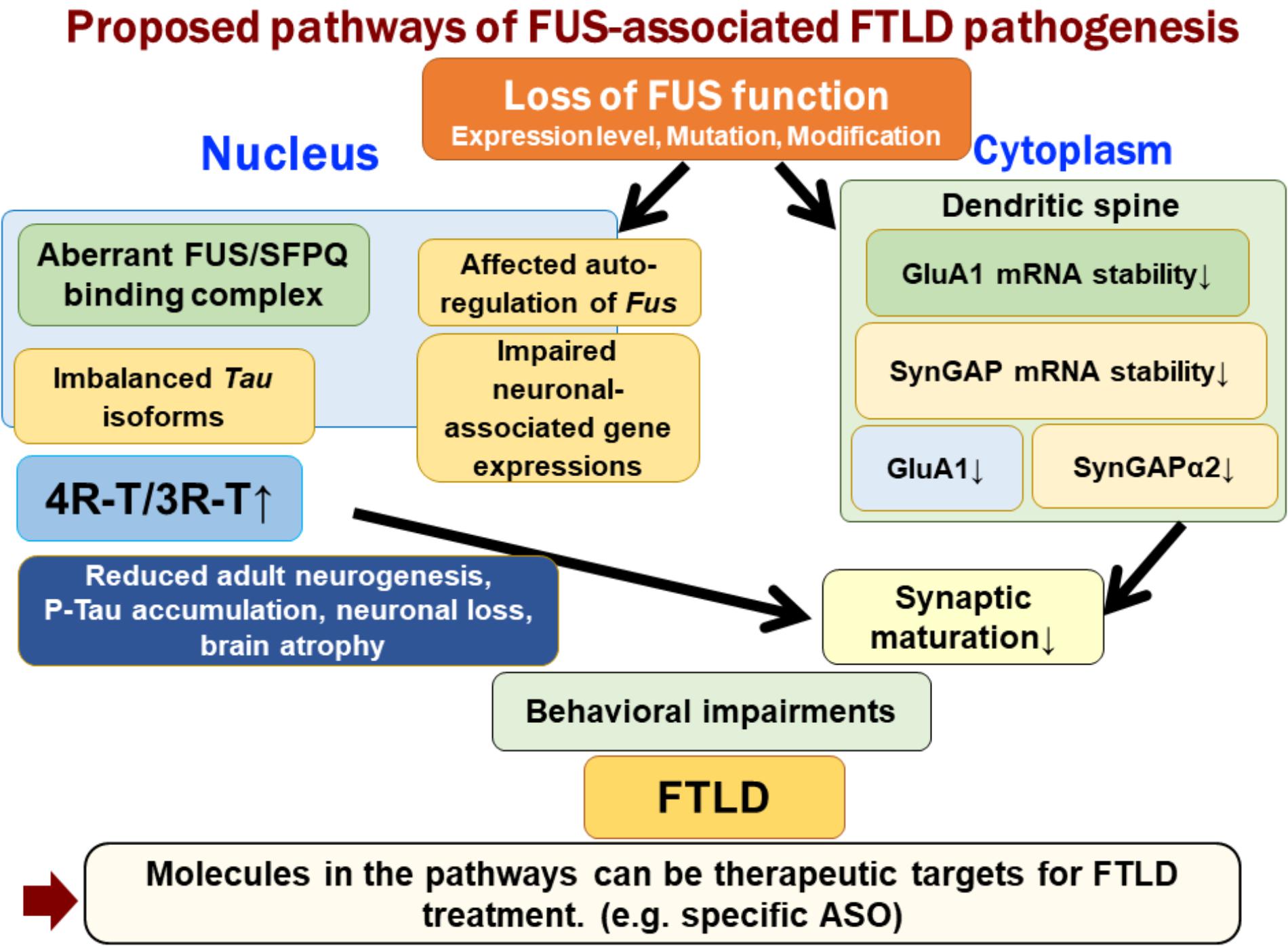
Frontiers Pathogenesis of Frontotemporal Lobar Degeneration Insights From Loss of Function
During the early stages of frontotemporal dementia, individuals often experience notable shifts in their behavior, including apathy, disinhibition, and a loss of empathy. These early behavioral changes may manifest as inappropriate social behaviors, reduced interest in activities, and a lack of judgment.
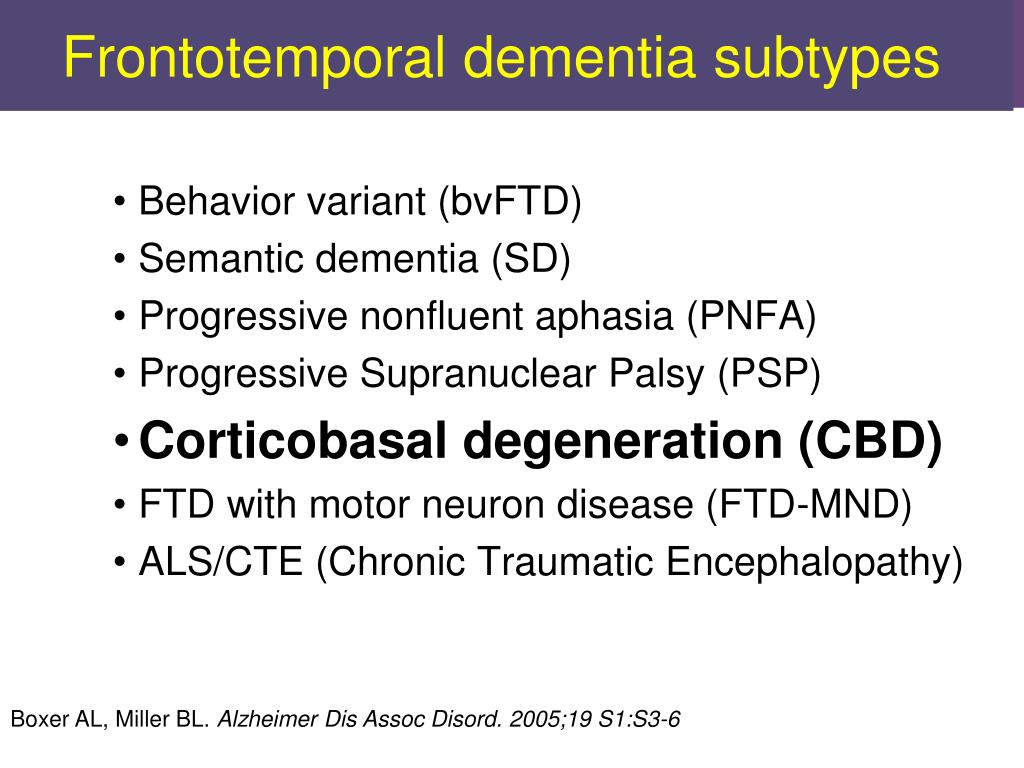
PPT Frontotemporal Dementia (FTD) PowerPoint Presentation, free download ID6392277
The following are the seven stages of frontotemporal dementia: 1. - Stage One. No symptoms. The disease has not yet progressed far enough to cause any symptoms, and patients would present as 'normal' and completely healthy. 2. - Stage Two. Mild symptoms begin to present themselves.

Progression in Frontotemporal Dementia Neurology JAMA Neurology The JAMA Network
Treatment. There's currently no cure or treatment for frontotemporal dementia, although research into treatments is ongoing. Medicines used to treat or slow Alzheimer's disease don't seem to be helpful for people with frontotemporal dementia. Some Alzheimer's medicines may worsen the FTD symptoms.

What Are The 7 Stages Of Frontotemporal Dementia (FTD)?
Frontotemporal dementia refers to a group of conditions that can affect speech, behavior, and other functions. Learn about the symptoms, stages, and treatment.
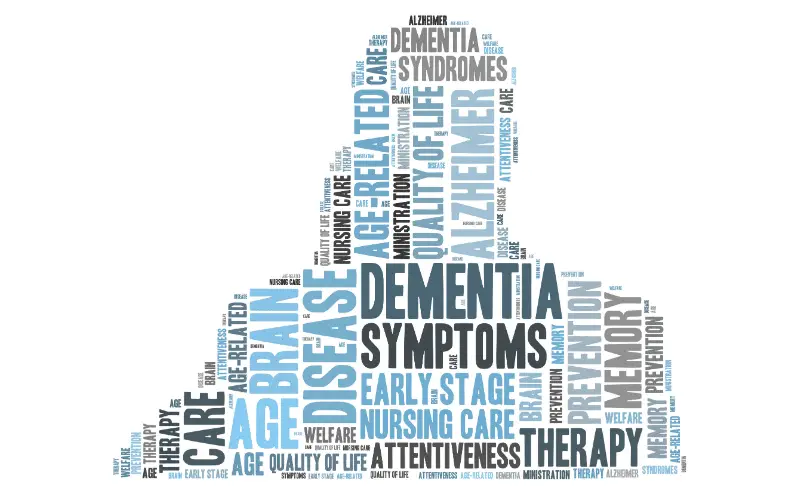
Frontotemporal Dementia A Close Examination of Its Seven Stages
Frontotemporal lobar degeneration (FTLD) is a pathologically defined entity involving synapse loss, gliosis, neuronal loss, and ultimately gross atrophy within the frontal and anterior temporal lobes, basal ganglia, and thalamus ().FTLD gives rise to a heterogeneous group of clinical syndromes collectively referred to as frontotemporal dementia (FTD).

What is Frontotemporal Dementia?? The Ruby Pardue Blackburn Adult Day Health Care Center
The most common symptoms of frontotemporal dementia involve extreme changes in behavior and personality. These include: Increasingly inappropriate social behavior. Loss of empathy and other interpersonal skills. For example, not being sensitive to another person's feelings. Lack of judgment. Loss of inhibition.

Earlystage right temporal lobe variant of frontotemporal dementia 3 years of followup
Read more about the 7 stages of vascular dementia here. Symptoms of frontotemporal dementia. Frontotemporal Dementia (FTD) is a debilitating neurodegenerative condition characterised by a range of progressive symptoms that develop over time. Recognising these symptoms is crucial for early detection and intervention.

Frontotemporal dementia The BMJ
Contrary to a common misconception, there are not 7 distinct stages of frontotemporal dementia (FTD), but rather 3 broad stages of this degenerative disease. The confusion about there being 7 stages of frontotemporal dementia (FTD) likely arises from a misapplication of another dementia staging system called the Global Deterioration Scale (GDS).

Frontotemporal dementia The BMJ
What are the 7 stages of frontotemporal dementia? While some health care providers have made up lists of typical FTD stages, outlining seven or eight phases, most experts say there's no single.
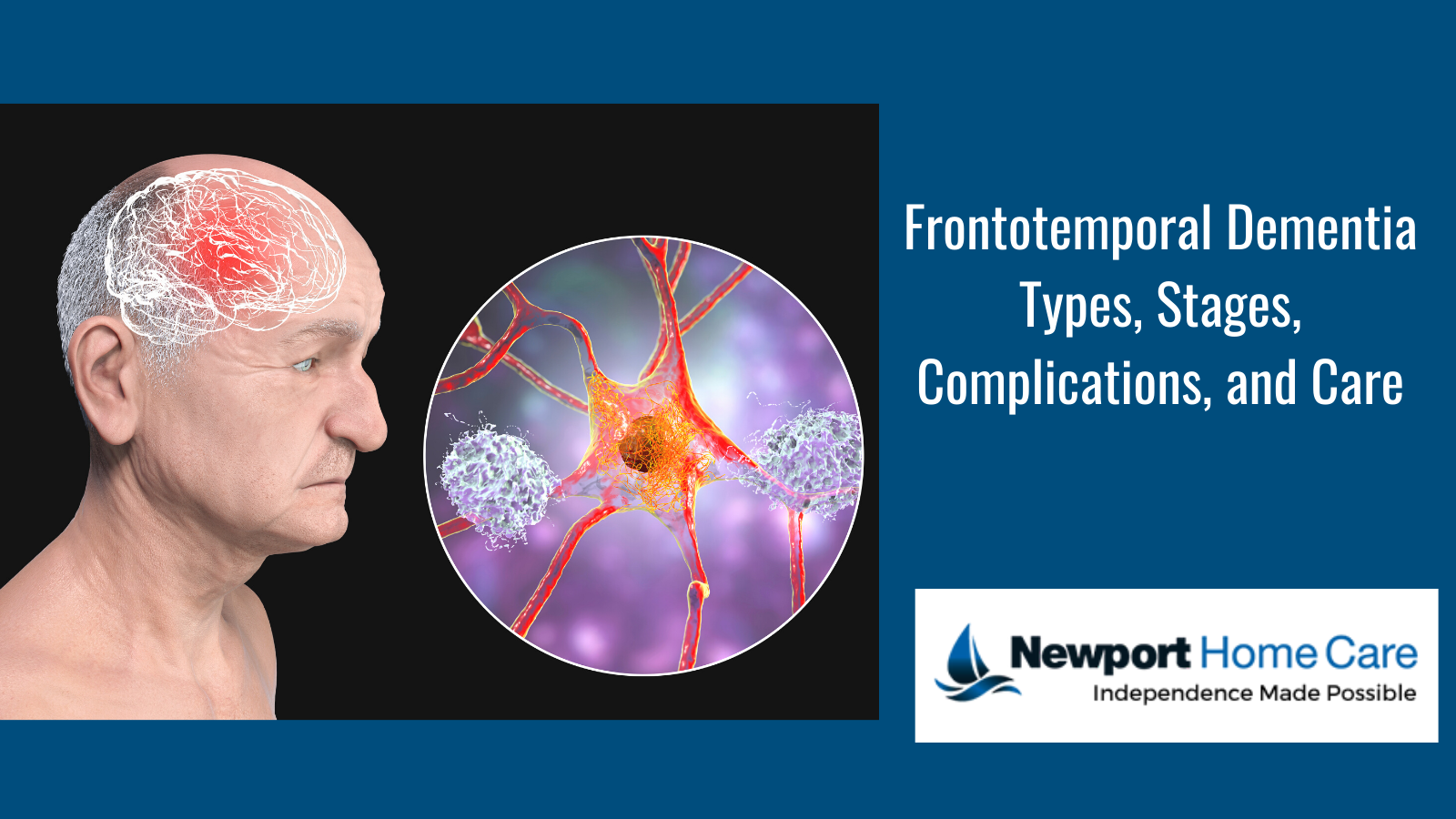
Frontotemporal Dementia Types, Stages, Complications, and Care
Frontotemporal dementia is an early onset disorder that mostly occurs between the ages of 45 and 65, [13] but can begin earlier, and in 20-25% of cases onset is later. [11] [14] Men and women appear to be equally affected. [15] It is the most common early presenting dementia. [16]
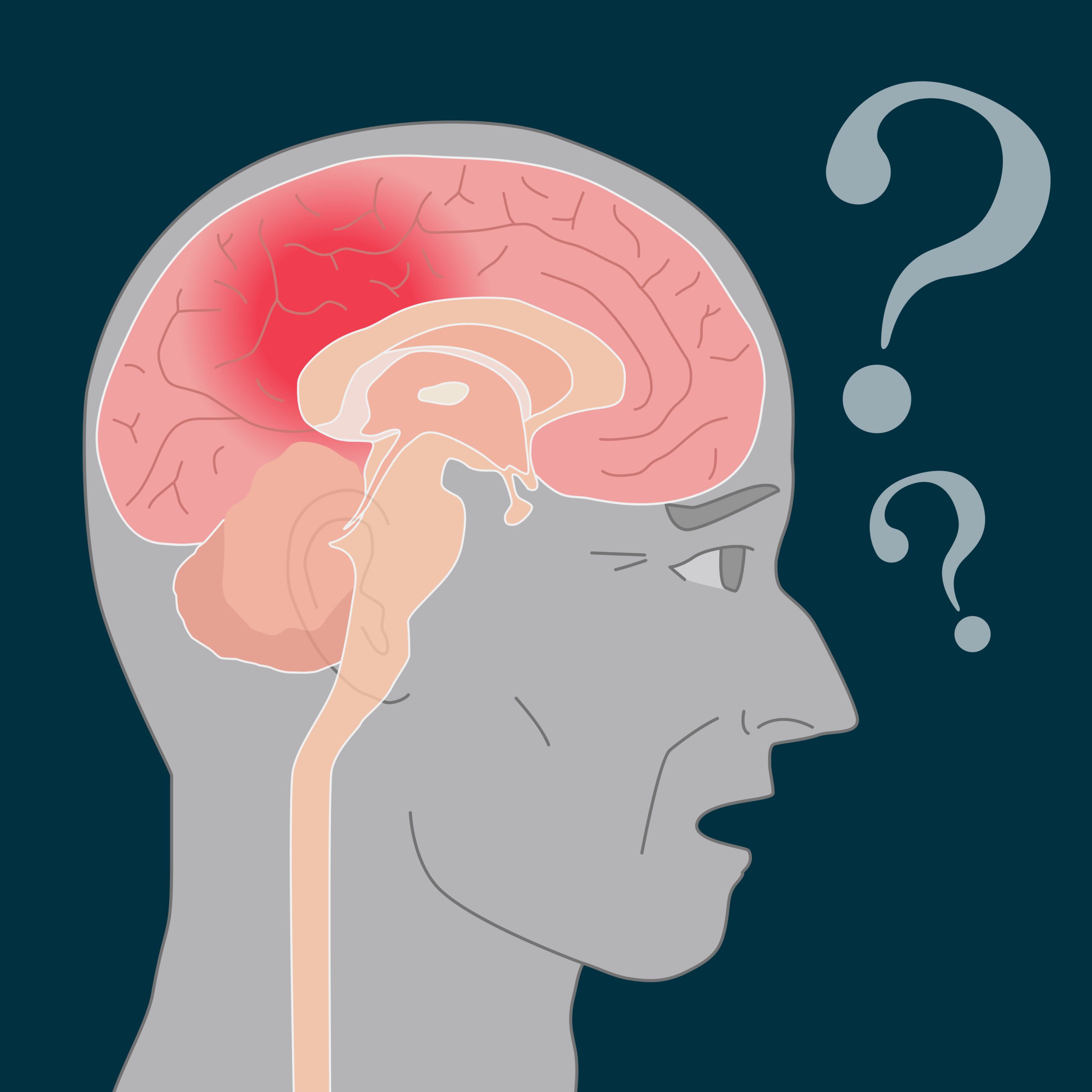
What are the 7 stages of frontotemporal dementia
Frontotemporal dementia is a group of disorders characterized by the loss of nerve cells in the frontal and temporal lobes of the brain, which causes these lobes to shrink. The cause of FTD is unknown. Symptoms typically first occur between the ages of 40 and 65 and can include changes in personality and behavior, progressive loss of speech and.

Frontotemporal dementia The Lancet
Overview. Frontotemporal dementia (sometimes referred to as FTD) is an umbrella term for a group of rarer disorders that primarily affect the frontal and temporal regions of the brain - the areas generally associated with personality and behaviour. Researchers estimate that approximately 5 to 10% of all dementia cases are frontotemporal dementia.
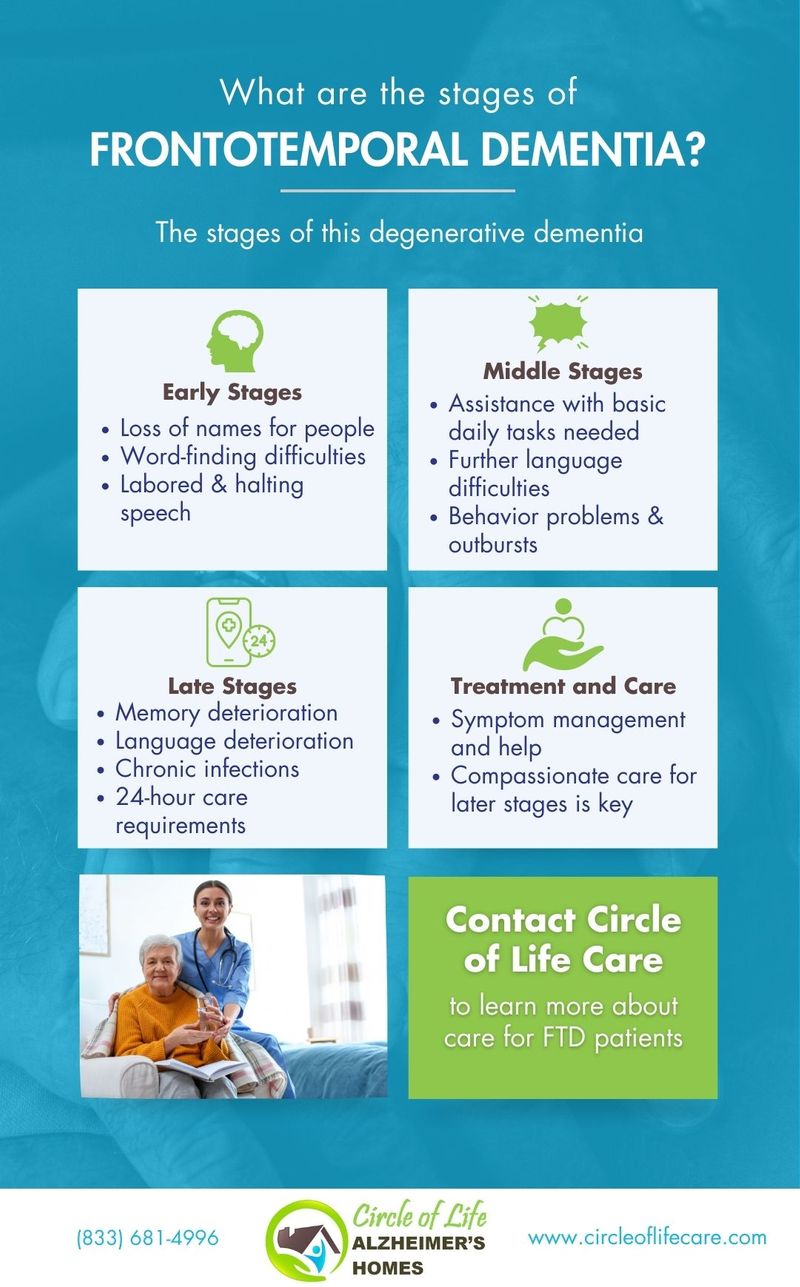
What Are The Stages Of Frontotemporal Dementia? Circle of Life Care
Frontotemporal dementia (FTD) is a progressive brain disease. This means over time, it causes parts of your brain to deteriorate and stop working. Depending on where it starts in your brain, this condition affects your behavior or ability to speak and understand others. It's not curable or treatable, but some symptoms might be treatable.
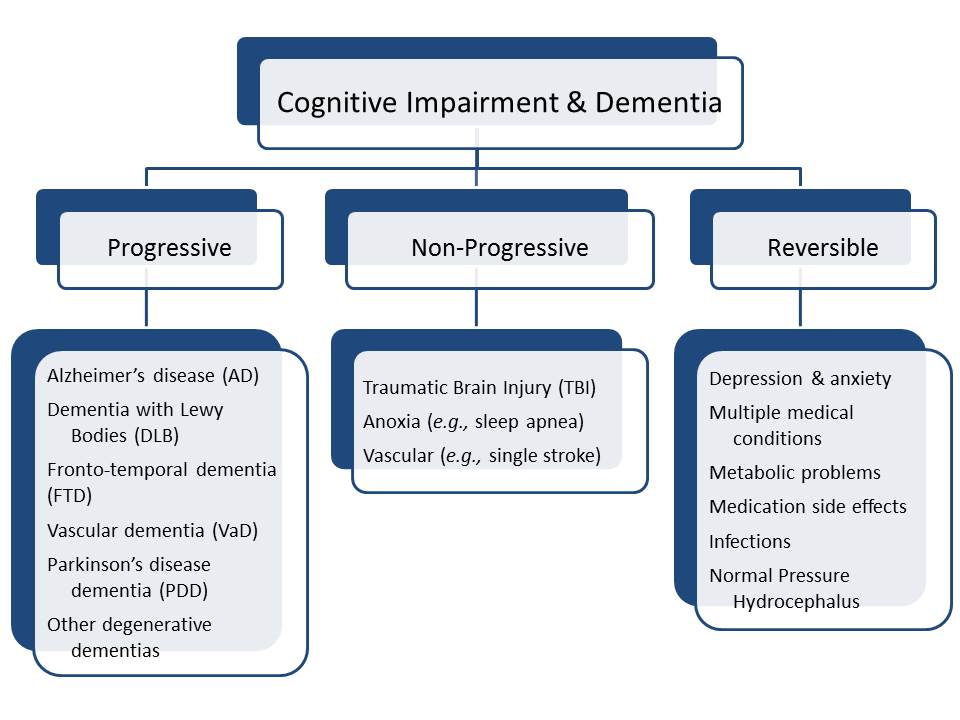
Dementia Stages Of Frontotemporal Dementia
Some of the other causes include Parkinson's disease, Lewy body dementia, and frontotemporal dementia. Dementia progresses in stages, ranging from mild to severe. In 1982, Dr. Barry Reisberg created the Global Deterioration Scale (GDS), consisting of seven stages, to help clinicians categorize the progression of dementia.
